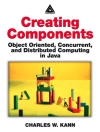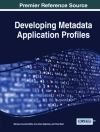This book introduces ongoing reflections within the research community on established information systems development topics and emerging concepts, approaches and ideas in the field of healthcare information systems. By promoting research on theoretical and methodological issues related to both information systems development in general and healthcare information systems in particular, it presents current research in order to promote improved practice. It comprises a selection of the best papers presented at the 24th International Conference on Information Systems Development (ISD) held in Harbin, China, August 25 – 27, 2015.
Tabela de Conteúdo
A Method for Systematic Adaptation and Synchronization of Healthcare Processes.- A Monitoring Infrastructure for the Quality Assessment of Cloud Services.- A Motivation-oriented Architecture Modelling for e-Healthcare Prosumption.- A Proposed Framework for Examining Information Systems Security Research: A Multilevel Perspective.- An Agile Enterprise Architecture Driven Model for Geographically Distributed Agile Development.- Community-Based Message Opportunistic Transmission.- Educational Artefacts as a Foundation for Development of Remote Speech-Language Therapies.- Framing or Gaming? Constructing a Study to Explore the Impact of Option Presentation on Consumers.- How Mentorship Improves Reverse Transfer of Tacit Knowledge in Chinese Multinational Companies (MNCs).- Optimal Requirements-Dependent Model-Driven Agent Development.- Supporting People to Age-in-Place: Prototyping a Multi-sided Health and Wellbeing Platform in a Living Lab Setting.- The Perceived Impact of the Agile Development and Project Management Method Scrum on Team Leadership in Information Systems Development.- The Roles of Complementary and Supplementary Fit in Predicting Online Brand Community Users’ Willingness to Contribute.- Understanding Digital Inequality: Studying the Use of Mobile Business Supporting Features in China.- Understanding Problematic Smartphone Use and its Characteristics: A Perspective on Behavioral Addiction.
Sobre o autor
Doug Vogel is professor of Information Systems (IS) and Director of the e Health Research Institute in the School of Management at the Harbin Institute of Technology. His research interests reflect a concern for encouraging efficient and effective utilization of computer systems in an atmosphere conducive to enhancing the quality of life.
Xitong Guo is Professor of Information Systems at the Harbin Institute of Technology. His current research focuses on e Health and IT enabled innovation.
Henry Linger is a senior researcher in the Centre for Organisational and Social Informatics (COSI) at Monash University in Melbourne, Australia. His research is at the intersection of information systems, knowledge management, and project management, with a focus on the design of information systems to support knowledge work.
Chris Barry works with the Cairnes School of Business and Economics at the National University of Ireland, Galway. He lectures and researches a range of areas in information systems including systems analysis and design, information systems management, and ethics in information systems development.
Michael Lang is a Senior Lecturer in Business Information Systems at the Cairnes School of Business and Economics, National University of Ireland, Galway. His research interests are business systems analysis and design, information systems privacy, and information systems education. Christoph Schneider is an Assistant Professor in the Department of Information Systems at City University of Hong Kong. His research focuses on the effects of user interface design on cognition, affect, and behavior, in particular in the context of Web-based user interfaces.












